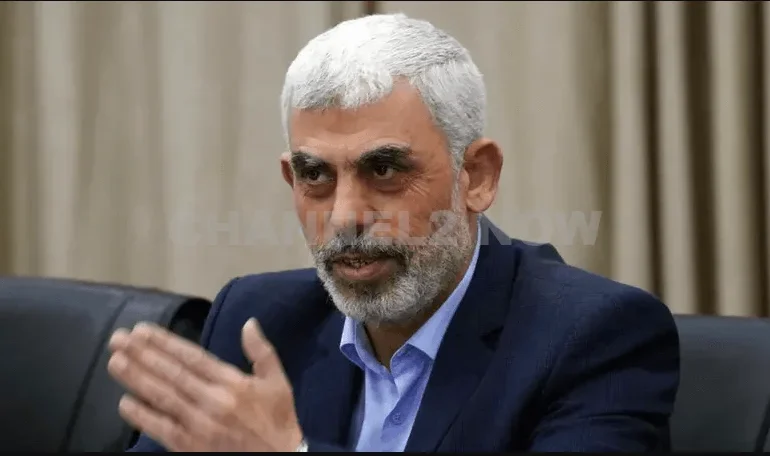
Yahya Sinwar’s Death: Yahya Sinwar, Key Hamas Leader, Reportedly Among Three Killed in Targeted Gaza Airstrike
Yahya Sinwar’s Death: Yahya Sinwar, Key Hamas Leader, Reportedly Among Three Killed in Targeted Gaza Airstrike; IDF Launches Investigation to Confirm Identities Following Operation Aimed at High-Profile Militants Amid Intensified Gaza Conflict
Yahya Sinwar, a central figure in the Hamas leadership, is suspected to have been among the three individuals killed in an airstrike carried out by the Israeli military on October 17, 2024, in the Gaza Strip. The airstrike, which targeted a specific building in a strategic part of Gaza, was part of a broader Israeli effort to eliminate high-ranking militant figures. The operation comes amid a heightened period of military engagement between Israel and Hamas, which has seen a significant escalation since the October 7, 2023, attack on Israel. That attack, attributed to Sinwar as its mastermind, involved a coordinated assault by Hamas militants, leading to extensive casualties and a wave of retaliatory military operations from Israel.
The targeted airstrike was conducted based on intelligence indicating the presence of high-profile militants within the building. While initial reports suggested that Sinwar might have been one of the individuals killed, the Israeli Defense Forces (IDF) have not yet confirmed his death. The IDF has launched a thorough investigation to verify the identities of those who were in the building at the time of the strike, with intelligence sources, forensic data, and eyewitness accounts being examined to determine whether Sinwar was indeed among the casualties. If confirmed, Sinwar’s death would represent a significant blow to Hamas’ leadership, given his critical role in shaping the group’s military strategies and directing its operations.
Sinwar, who emerged as a leading figure in Hamas following the assassination of former leader Ismail Haniyeh in Tehran in August, had become one of the most influential individuals within the group. His leadership was marked by an uncompromising stance against Israel and a strategic focus on military resilience. Known for his deep involvement in orchestrating armed confrontations with Israel, Sinwar’s leadership was particularly noted for its emphasis on bolstering Hamas’ military capabilities in anticipation of inevitable clashes with Israeli forces. The airstrike that potentially claimed his life targeted the building with precision, following intelligence assessments aimed at disrupting Hamas’ operational planning by targeting its most prominent figures.
The aftermath of the airstrike has been characterized by widespread speculation and concern, with the IDF’s efforts to confirm the identities of the deceased individuals becoming a focal point. While Israel has stated that the operation aimed specifically at militants, there is always concern about potential civilian casualties in such targeted strikes. As per the official statements, there were no immediate indications of hostages being present in the building during the attack. Nonetheless, the IDF is continuing to collect and analyze information from various sources, including satellite imagery, intercepted communications, and reports from the ground, to ensure an accurate account of the incident.
For Hamas, the potential loss of Yahya Sinwar would undoubtedly have significant implications for the group’s leadership structure and its future military tactics. As a key strategist, Sinwar’s influence extended beyond operational planning to the ideological framework that shaped the group’s approach toward Israel. His ascent to power was marked by a shift towards more aggressive military strategies, reflecting his background as a founding member of Hamas’ military wing, the Izz ad-Din al-Qassam Brigades. He spent over two decades in an Israeli prison, where he further solidified his reputation as a hardliner, before being released as part of a prisoner exchange in 2011. Since then, he became a pivotal figure within the organization, assuming increasingly prominent roles leading up to his leadership position.
If confirmed, Sinwar’s death could prompt various responses from Hamas, ranging from escalated rocket attacks on Israeli territory to intensified ground operations along the Gaza border. Such retaliatory actions could potentially increase the risk of a full-scale military conflict, especially considering the current state of heightened tensions. Israel, on its part, continues to stress its commitment to neutralizing threats posed by militant groups operating from within Gaza while maintaining its defense posture to protect its citizens from incoming rocket fire and other forms of attack.
The death of a high-profile figure like Yahya Sinwar would also likely have a significant impact on the internal dynamics within Hamas, potentially creating a leadership vacuum or power struggle as factions vie to fill the void left by his absence. Sinwar’s stature within Hamas was not just as a leader but also as a symbol of resistance, and his loss would necessitate a reorganization of the group’s leadership hierarchy. Some analysts suggest that his death could weaken Hamas’ resolve temporarily, while others believe that it could further galvanize the group, leading to a renewed commitment to its military objectives.
The international community is closely monitoring the situation, with many nations expressing concern over the potential for further escalation. The ongoing conflict between Israel and Hamas has already resulted in significant casualties and humanitarian distress, with the people of Gaza facing shortages of essential supplies, electricity, and medical care. International diplomatic efforts to mediate a ceasefire have faced challenges due to the deep-rooted animosity and the longstanding cycle of violence that has characterized the conflict. Should Sinwar’s death be confirmed, it could either open avenues for dialogue by destabilizing Hamas’ command structure or, conversely, trigger a new wave of violence that would further complicate peace efforts.
For the families of those impacted by the ongoing conflict, the potential death of a figure like Yahya Sinwar carries complex implications. On one hand, his death may be seen by some as a step towards weakening Hamas’ military capabilities, potentially leading to a reduction in the frequency of hostilities. On the other hand, for those within Gaza and supporters of Hamas, his death could be viewed as a martyrdom that reinforces the resistance narrative and escalates retaliatory actions against Israel. The broader implications for the region remain uncertain as each development in this evolving situation adds layers to an already complex and volatile scenario.
As the IDF’s investigation continues, further information will be needed to establish the facts surrounding the strike and confirm the identities of those killed. In the meantime, this incident has reignited discussions about the ethics and effectiveness of targeted airstrikes as a means of counterterrorism, as well as the legal implications of military actions that result in fatalities. The challenge remains in balancing the need to neutralize threats while minimizing harm to civilians and ensuring compliance with international humanitarian law.
The events of October 17, 2024, will likely be remembered as a significant moment in the ongoing conflict between Israel and Hamas, with the potential death of Yahya Sinwar marking a turning point in the trajectory of hostilities. As the investigation progresses, the global community awaits further updates on the official findings, and the ramifications of this operation will undoubtedly shape the nature of the conflict in the days and months to come. The cycle of retaliation and military operations may continue, but the hope for a sustainable resolution to the conflict remains, however distant it may appear amidst the current violence.



